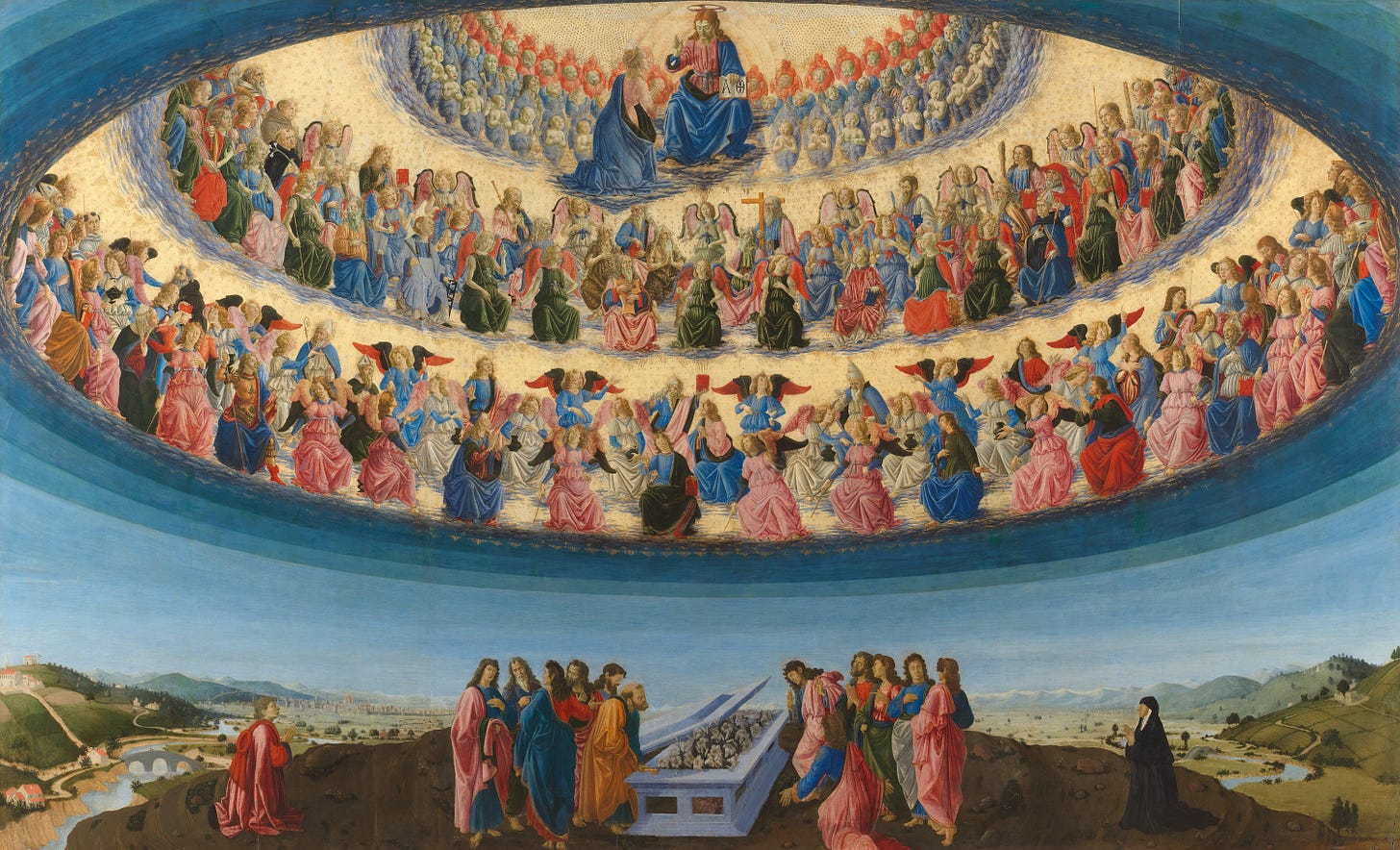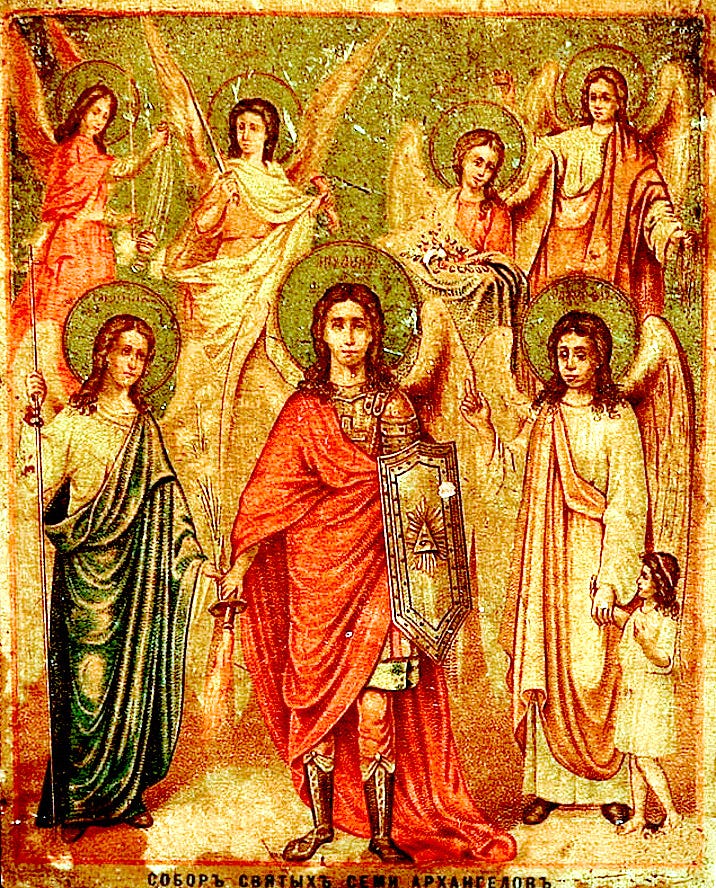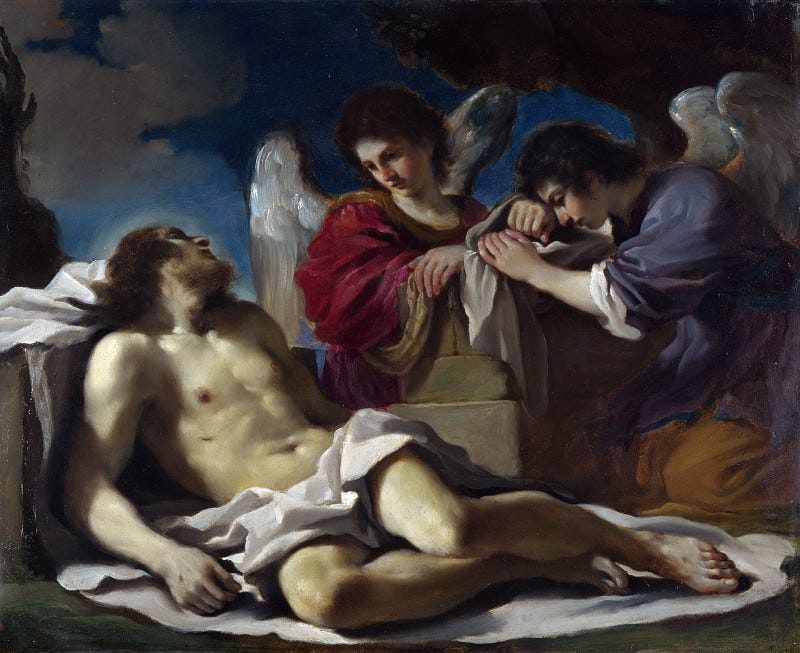St. John Henry Newman on the Holy Angels
"Most perfect of creature - the image of God's attributes"
One of the most significant canonizations declared by Pope Benedict XVI was that of John Henry Newman, arguably the greatest convert to Catholicism in the 19th century and perhaps in the whole history of Protestant England. Having been a prominent member of the Oxford Movement as an Anglican, he followed its desire for greater continuity with Christian theological, liturgical and cultural history until becoming so deep in history he finally ceased to be Protestant and found his true home in the Catholic Church.
A topic dear to Newman’s heart was the spiritual glory, the pivotal role in salvation history and the unswerving guardianship of the holy angels. Though modern in many ways, Newman had a truly medieval soul and Thomistic outlook. He believed, as St. Thomas Aquinas taught, that each angel is utterly unique, an individual species in itself, unlike humans whose formal nature is individuated by matter. Angels are pure spirits who differ from each other as a horse does from a lion, and each is as unrepeatable as an individual human. As Newman explained,
[T[he Angels have been considered by divines to have each of them a species to himself; and we may fancy each of them so absolutely sui similis as to be like nothing else, so that it would be as untrue to speak of a thousand Angels as of a thousand Hannibals or Ciceros.[1]
Once more expressing his perennially Catholic mind, Newman recognized, like St. Thomas before him, that inanimate things in Creation cannot move themselves. Since they lack the self-moving souls of living creatures, the elements of the world must be moved by a higher intelligence, by spirits commissioned by God for such a task. While modern science attributes this movement entirely to the laws and forces of nature, Newman recognized that these laws and forces derive from natural things themselves, not vice versa, and through their dependence they cannot account for the movement of inanimate things on their own. In answer, Newman followed the medieval tradition in positing angels as the governors of the material world:
I affirm, that as our souls move our bodies, be our bodies what they may [according to science], so there are Spiritual Intelligences which move those wonderful and vast portions of the natural world which seem to be inanimate... Every breath of air and ray of light and heat, every beautiful prospect, is, as it were, the skirts of their garments, the waving of the robes of those whose faces see God in heaven.[2]
St. Thomas likewise taught that, since angels lack the limitations of a material body, they are in fact more perfectly in the image of God than are humans. Like God, they are pure intellect and will, both of which powers they exercise to a much higher degree of wisdom, love and joy than any man. This is why, alongside His desire to do all things communally and cooperatively in His Creation unless He intervenes directly, God designates the angels as His ‘messengers’ (angelos) in salvation history, executing His commands to cast Satan out of their ranks (Apocalypse 12:7-9), to deliver God’s revelation to the saints (Luke 1:11-19, 26-38; Acts 7:30, 35; Apocalypse 1:1-2), to incense the altar of Heaven with the prayers of the saints in God’s presence (Apocalypse 8:3-4) and even at times to appear physically as an icon shining with the light of the divine presence (Luke 2:9):
Most perfect of creature – the image of God’s attributes. Their knowledge most comprehensive. They do not learn, they do not discover, but at once from their nature they know intuitively all things of the world; whereas the greatest philosophers with pains only know a little. They know God and His attributes by nature, even without grace. They understand His attributes, etc. They see God in all things... Many wonderful things in this world, but an angel more wonderful than all. If a creature so wonderful, what the Creator?[3]
For this reason, it was most appropriate that God sent the angels to represent Him to the saints of the Old and New Testaments. Indeed, Newman notes that the angels even receive a form of ‘worship’ which falls infinitely short of the latria or adoration due to God alone but which still befits their grandeur, immortality, superiority and refulgence with the light of glory. On the other hand, as St. Augustine and others have remarked, this has also led many pagans and heretics to mistake angels for God Himself, turning them into idols and false gods – a treatment especially abused by demons, hence why Scripture describes the gods of pagans as devils (Psalm 95:5; 1 Corinthians 10:20). Newman thus wrote,
Angels were actually worshipped, in the proper sense of the word, by Gnostics and other heretics, who even ascribed to them the source of any good to man, and the acceptable channel intrinsically of approaching God, in derogation of our Lord's sole mediation, is idolatry… In the Old Testament, the angel sometimes appears by himself as a messenger from God and then receives homage as such; sometimes he is the manifestation of a Divine Presence and thus becomes relatively an object of worship... When 'the people saw the cloudy pillar stand at the tabernacle-door,' 'all the people rose up and worshipped, every man in his tent-door.' When Daniel too saw 'a certain man clothed in linen' 'there remained no strength in him,' for his 'homeliness was turned' in him 'into corruption.' He fell down on his face, and next remained on his knees and hands, and at length 'stood trembling,' and said 'O my Lord, by the vision my sorrows are turned upon me, and I have retained no strength. For how can the servant of this my Lord talk with this my Lord?'[4]
Finally, Newman had a great love for the angels in his daily spiritual life. He recognized the constant work of guardian angels to shield himself and all people from spiritual and physical attacks. He thus once counselled his friend, Sister Maria, “your Guardian Angel will be faithful to the end” and later wrote to the Duke of Norfolk, “my good Guardian Angel, who never fails me, when the trial comes, has pulled me through.”[5] Like many great Catholic visionaries in history, as well as not a few exorcists, he perceived the invaluable mission of the angels in the life of the Church:
[T]heir presence in and about the Church, and with all of us individually, is an inestimable blessing, never to be slighted or forgotten; for, as by our prayers and our kinds deeds we can serve each other, so Angels, but in a far higher way, serve us, and are channels of grace to us, as the Sacraments also are.[6]
In a beautiful expression of fraternal compassion for his spiritual friends who watched over him throughout his life, guided him through his conversion and now glorify God with him in the heavenly liturgy, Newman wrote:
[H]ow weary the angels must get of the history of the world - every generation beginning with sinners, and then some turning to repentance - looking at individual souls, seeing them plunge into sin fearlessly - yet they are afterwards to repent - they must feel indignation that God should be trifled with.[7]
May we never fail to remember the holy angels in our prayers and always strive to honor them by our virtue and holiness so that neither they nor God may ever be so sorrowed by our sins.
[1] Dave Armstrong, The Quotable Newman (Manchester, NH: Sophia Institute Press, 2012), 7.
[2] Quoted in Stratford Caldecott, The Power of the Ring (Chestnut Ridge, NY: Crossroad, 2012), 106.
[3] Armstrong, The Quotable Newman, 6.
[4] Armstrong, The Quotable Newman, 6-7.
[5] Armstrong, The Quotable Newman, 7.
[6] Armstrong, The Quotable Newman, 7.
[7] Armstrong, The Quotable Newman, 6.




